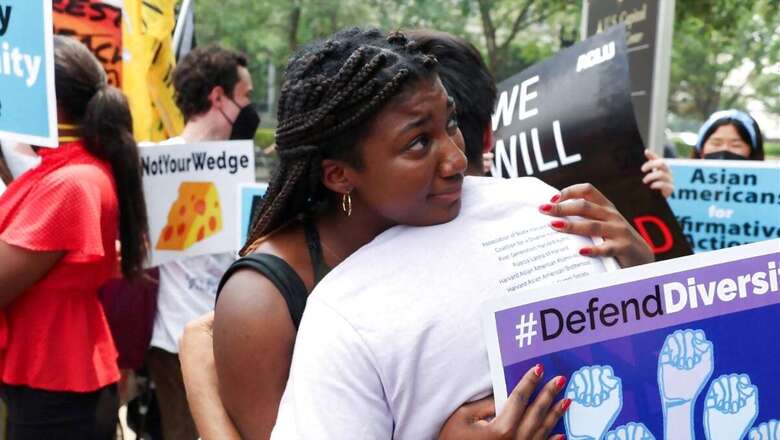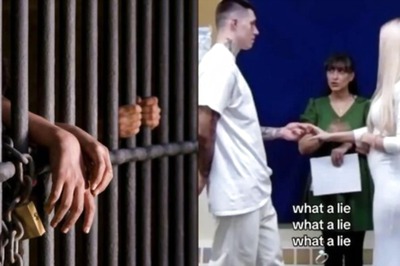
views
The US Supreme Court severely limited the scope of affirmative action policies in American college admissions after hearing several cases on Thursday, the Hill said in a report.
American institutions for decades have used affirmative action programs to select students from their applicant pools.
The US Supreme Court’s conservative justices, six out of nine, said Harvard and University of North Carolina at Chapel Hill’s (UNC) admissions practices did not comply with the 14th Amendment’s guarantee of equal protection.
“Both programs lack sufficiently focused and measurable objectives warranting the use of race, unavoidably employ race in a negative manner, involve racial stereotyping, and lack meaningful endpoints,” US Chief Justice John Roberts was quoted as saying by the Hill.
“In other words, the student must be treated based on his or her experiences as an individual—not on the basis of race,” he further added, saying that universities have done the opposite for too long.
The US Chief Justice, however, pointed out that “nothing in this opinion should be construed as prohibiting universities from considering an applicant’s discussion of how race affected his or her life”.
How Did Liberal Justices React?
The three liberal justices Sonia Sotomayor, Elena Kagan and Ketanji Brown Jackson dissented against the ruling. Sotomayor, who is considered the most liberal, said the court rolled back decades of “precedent and momentous progress”.
“It holds that race can no longer be used in a limited way in college admissions to achieve such critical benefits. In so holding, the Court cements a superficial rule of colorblindness as a constitutional principle in an endemically segregated society where race has always mattered and continues to matter,” Sotomayor said.
Ketanji Brown Jackson recused herself from the case because she served on Harvard’s Board of Overseers until last spring.
She, however, said: “The best that can be said of the majority’s perspective is that it proceeds (ostrich-like) from the hope that preventing consideration of race will end racism. But if that is its motivation, the majority proceeds in vain. If the colleges of this country are required to ignore a thing that matters, it will not just go away. It will take longer for racism to leave us”.
How Have the Colleges Reacted?
UNC Chancellor Kevin Guskiewicz said that the university will “carefully review” the decision and take the necessary steps in order to comply with it.
He said the university remains committed to bringing together talented students with different perspectives and life experiences and continues to make an affordable, high-quality education accessible to the people of North Carolina and beyond.
Harvard said it will look at the ruling and determine how to “preserve, consistent with the Court’s new precedent,” its “essential values”.
The leaders of the Association of American Medical Colleges said they were “deeply disappointed.”
What are the Political Reactions?
The US President Joe Biden criticised the ruling and said the apex court of the land is “not a normal court”.
“Take a look at how it’s ruled on a number of issues that have been precedent for 50, 60 years sometimes. And that’s what I meant by not normal. Across the board the vast majority of the American people don’t agree with the majority of decisions the court is making,” Biden said.
Republicans lauded the decision and Colorado Republican Ken Buck asked Black American students to look to role models like South Carolina Republican Tim Scott and Supreme Court Justice Clarence Thomas, both of whom are Black Americans, according to a report by the Hill.
“As a Black woman who had the audacity to attend college, I am disgusted that our country just enshrined racial inequity in higher education and economic immobility into law,” Pennsylvania’s Black American House of Representatives member Summer Lee said.




















Comments
0 comment